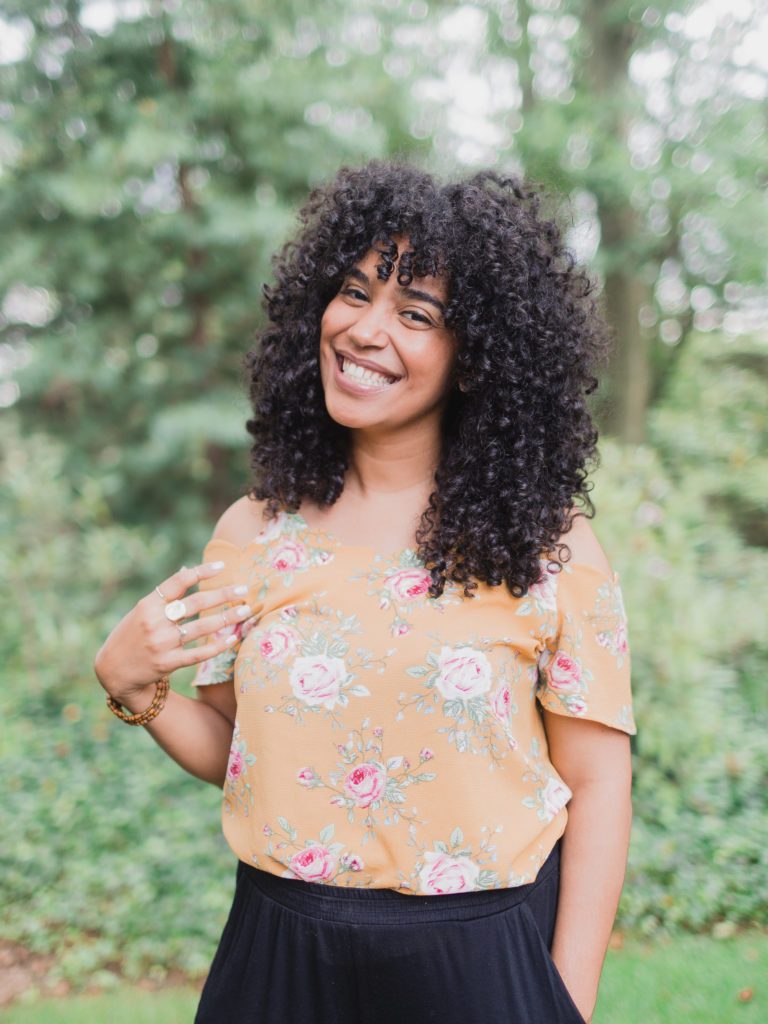A chat with Elizabeth Acevedo
Author and poet, Elizabeth Acevedo, will discuss her novel, The Poet X, as a part of the Brazos Valley Reads initiative. We sat down with her and had a chat about her books and her creative inspirations.

By Heather Rodriguez ’04
Prolific author and poet, Elizabeth Acevedo, will discuss her novel, The Poet X, as a part of the Brazos Valley Reads initiative. Acevedo’s presentation will feature two of her novels, The Poet X and With the Fire on High, at the Annenberg Presidential Conference Center on Feb. 25 at 7pm. The talk will last an hour, with fifteen minutes for a Q&A, followed by a book signing. To prepare for this event, the College of Liberal Arts sat down with her and had a chat about her books and her creative inspirations.
Explain the significance of the title, The Poet X?
The main character’s name is Xiomara, so it’s partly a play on her stage name being derived from her actual name, and it’s partly a play on “X” as an unknown variable.
Why did you choose to tell this story in verse, rather than the traditional narrative format? Do you plan on writing more stories in this way?
I always knew that the majority of Xiomara’s story was going to be in verse. I didn’t know that until I was already in the process of writing and discovering her voice, that it was going to be this mix. My history of writing is primarily in poetry, I’ve been writing poetry since I was eight. I come from storytellers, and this was my most natural medium.
My future projects vary. My third YA novel will be in verse. But I will also continue to write poetry & prose. Poetry is different in that there is an emotional truth I’m trying to reckon with and that I can play with the language. Fiction manuscripts have to be done with focus. With poetry I’m more patient, I’m working, figuring things out, even if I’m not actively writing.
The Poet X is classified as a young adult novel, but do you feel that this book can reach a wider audience due to its relatable coming-of-age story? Why or why not?
I think the arts can really open folks up, and I haven’t been surprised by X’s crossover appeal. Ultimately, I want people to walk away from my work feeling empowered to live their truths. The Poet X is a story of family, loving fiercely, culture, gender, and having your voice heard – universal truths of being human, no matter of age.
You will also be discussing your novel With the Fire on High. What was the inspiration for this novel?
I love watching the Food Network, especially the show Chopped. I’m always in awe of contestants who take the most obscure (to me) ingredients and finagle dishes that look like they were composed far in advance and not in twenty minutes. I also love how the show sparks my own imagination as I yell at the screen as to what I would have cooked instead.
I taught at a high school one summer where some of the rising seniors took a culinary arts program to graduate. It wasn’t something that was in my school system growing up, but it seemed special this school had access to that kind of culinary education. What would happen if it was a teen mother in a culinary program, who questioned whether or not she had what it took to be a chef? What happens after a young woman becomes a mother and must grapple with following her dreams while doing what’s best for her daughter and her family?
Do you see yourself in the main characters of these two books?
There are cultural elements I share with Xiomara, and she’s also a poet. That push and pull that Xiomara carries of being first-generation is something I share. I may have also lifted a poem or two from my high school journal. I plagiarized myself, but it was a good way to keep me grounded. With Emoni, I find myself in her ferocity of love for her family, and her desire to dream big for herself even if she isn’t sure how to accomplish that dream. I am neither character, but they both have a bit of me.
The College of Liberal Arts is committed to diversity and an inclusive climate. How do you feel your books speak to these issues? Given the current political climate, are discussing these issues more important than ever before?
I think literature helps us understand who we are as a community, and helps give us an understanding of something outside our own perspective. At its best, books honor the voices and experiences of people, but also challenges them to confront the most difficult issues of our times.
Join us at this year’s Brazos Valley Reads event on Feb. 25, and read more about Elizabeth Acevedo’s work here.
